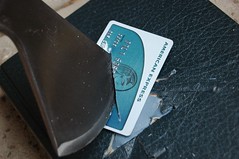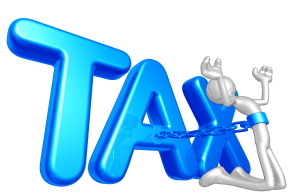
Certain numbers on your tax return can cause the IRS to be more interested in you than you might like.
Can just one number cause you to be audited by the IRS? Probably not. But there are some numbers that are just plain old suspicious, and once your return gets flagged for review, a suspicious number can move you from the “review” pile to “audit” pile.
Now, you can ask an IRS auditor why you’re being audited, and she’ll tell you it was just a random audit. And that’s usually a lie. Random audits account for a very small percentage of the actual audits. Usually, something makes the computer kick out your return for review – like unreported income. And that usually generates a simple IRS letter, “Hey, we noticed you missed something here….yada, yada, yada, please send us some more information.” That’s called a correspondence audit and they’re usually no big deal. The IRS sends you a letter, you send them a letter back with some explanation.
But if the computer kicks out your return and the reviewer sees a couple of anomalies, well, then you’ll more likely to be asked for a personal appearance. Let’s face it, you don’t want to make a personal appearance at the IRS office. You don’t even want to have a correspondence audit for that matter.
So what are the three nasty numbers?
The first one is $5,000. I often see this number for “non-cash charitable contributions”. $5,000 is the value you can donate without having a written appraisal. It goes on form 8283 which feeds to your Schedule A for itemized deductions. Here’s the thing – if you are claiming that you donated $5,000 worth of items to a charity, you’d better be able to substantiate it – even if you didn’t have an appraisal. First, you need to keep those receipts from Goodwill or Salvation Army. Also, you want to maintain a list of everything you donated. On that list you also want to write down what the item was worth at the time you donated it, and what you paid for it in the first place. Here’s a clue: if you bought a sofa for $1,000 and kept it in your house for 10 years – sitting on it, sleeping on it, letting the dog puke on it, etc., before donating it to charity– it’s not worth $5,000 now. Just being honest with you here.
Another nasty number is $10,000. For some reason, people who lie on their taxes like to lie with this number. I once had a woman call me because she was being audited. She was distraught because she had received a letter from the IRS about her charitable donation. I told her it was no problem, all she had to do was mail a copy of the donation receipt to the IRS. She said, “You don’t understand the problem, I don’t have a receipt!” I asked her how much the donation was for, she said, “$10,000.” I asked her who the donation was to, she said, “My college.” So I told her, “That’s not a problem! If your donated $10,000 to your college they will gladly you send you a copy of your receipt.” She told me, “You don’t understand the problem, I didn’t give no money to my college!” I now understood the problem completely and told her to write the IRS a check, I couldn’t help her.
Here’s the thing. Sadly, liars like to use the number 10,000. So if you have a real deduction that is for $10,000 – you really want to make sure that you’ve got your receipt.
My last nasty number is 20,000 – usually this is the number of miles claimed as a business expense. The average male driver puts 16,550 on his car per year, female drivers average 10,142 – and that’s total miles. So if you’re claiming 20,000 business miles it looks a little suspicious. Especially if you claim 20,000 miles even. Seriously? You drove 20,000 miles even? A round number like that is a lot suspicious. You should always have a mileage log to back up your auto expense deduction. You can get a blank copy here: mileage log.
Are you noticing a pattern here? Round numbers get extra scrutiny. It’s okay if you have deductions that are round numbers, but make sure you can back them up with receipts or logs.









